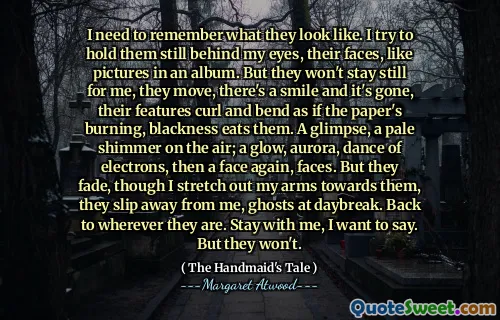Night falls. Or has fallen. Why is it that night falls, instead of rising, like the dawn? Yet if you look east, at sunset, you can see night rising, not falling; darkness lifting into the sky, up from the horizon, like a black sun behind cloud cover. Like smoke from an unseen fire, a line of fire just below the horizon, brushfire or a burning city.
In "The Handmaid's Tale" by Margaret Atwood, the imagery of night is explored, questioning why it is perceived as falling rather than rising. This reflection invites readers to consider the contrasting nature of night and dawn, where nighttime cloaks the world in darkness and mystery. The metaphor suggests a deeper significance to the arrival of night, evoking feelings of inevitability and foreboding.
Atwood portrays night as a force that ascends from the horizon, much like a dark sun emerging behind the clouds. This striking image implies a power that is both threatening and profound, likening it to smoke from a distant fire that could symbolize destruction or chaos. Through this description, the author evokes an unsettling atmosphere, inviting readers to contemplate the complexities of darkness and the hidden dangers that lurk beneath its surface.






